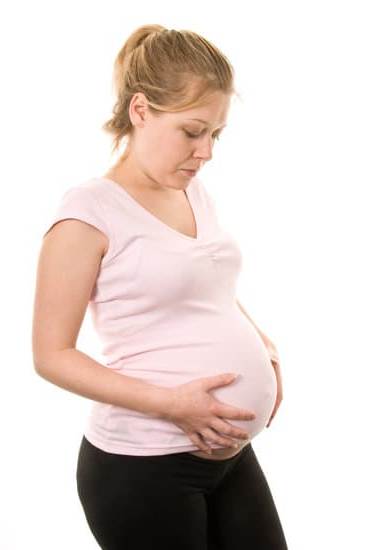During pregnancy, it is crucial for women to receive proper nutrition advice during pregnancy to ensure the health of both mother and baby. This article will cover the key nutrients necessary for a healthy pregnancy, common nutritional challenges, safe weight gain recommendations, and foods and drinks to avoid. Additionally, it will provide a sample meal plan and emphasize the importance of consulting with a registered dietitian for personalized nutrition advice.
Proper nutrition during pregnancy plays a vital role in the health and development of the baby, as well as the overall well-being of the mother. It can also impact the risk of some complications during pregnancy and birth. By understanding which nutrients are essential during this time and how to meet those needs through a balanced diet, women can better prepare for a healthy pregnancy.
Throughout this article, we will delve into specific key nutrients that are important for pregnant women, their dietary sources, as well as addressing common nutritional challenges that may arise. In addition to that, we will also explore safe weight gain recommendations and highlight certain foods and drinks that should be avoided during pregnancy.
It is important to note that each woman’s nutritional needs during pregnancy are unique, so seeking personalized advice from a registered dietitian is critical for optimal health.
The Importance of Proper Nutrition for Both Mother and Baby
Nutrition advice during pregnancy is crucial for the health and well-being of both the mother and the baby. A balanced and nutritious diet is essential for ensuring that the mother’s body receives the necessary nutrients to support her own health, as well as the healthy growth and development of the fetus. Proper nutrition during pregnancy can also help reduce the risk of certain complications, such as low birth weight, preterm birth, and birth defects.
One of the key benefits of proper nutrition during pregnancy is that it provides essential nutrients that are needed for the baby’s growth and development. For example, folate is crucial for preventing neural tube defects in babies, while iron supports the baby’s growth and prevents anemia in both the mother and child. Additionally, adequate intake of vitamins such as vitamin D, calcium, and omega-3 fatty acids are important for bone development, brain function, and overall health.
Furthermore, proper nutrition during pregnancy can also have long-term effects on the child’s health. Studies have shown that exposure to a healthy diet in utero may influence food preferences later in life. Therefore, establishing good eating habits during pregnancy can set the stage for a lifetime of healthy eating for both mother and child.
| Key Nutrients | Sources |
|---|---|
| Folate | Leafy greens, citrus fruits, beans |
| Iron | Red meat, poultry, fish |
| Vitamin D | Sunlight exposure, fatty fish (salmon, tuna) |
Key Nutrients for a Healthy Pregnancy and Their Sources
During pregnancy, it is crucial for women to ensure they are consuming the necessary nutrients to support the healthy development of their baby and maintain their own well-being. Some key nutrients that play a vital role during pregnancy include:
- Folic Acid: This B vitamin is important for preventing neural tube defects in the baby. Good sources of folic acid include leafy green vegetables, fortified cereals, and legumes.
- Iron: Iron is essential for carrying oxygen to the baby and preventing anemia in the mother. Foods high in iron include lean red meat, poultry, fish, and fortified cereals.
- Calcium: Calcium is crucial for bone development in the baby. Good sources of calcium include dairy products, tofu, almonds, and leafy green vegetables.
- Omega-3 Fatty Acids: These are important for the baby’s brain and eye development. Omega-3 fatty acids can be found in fatty fish such as salmon, walnuts, and flaxseeds.
It is important for pregnant women to consume a variety of nutrient-dense foods to ensure they are getting all the essential vitamins and minerals needed for a healthy pregnancy. In addition to the key nutrients mentioned above, other important nutrients include vitamin D, protein, and fiber. A balanced diet that includes plenty of fruits, vegetables, whole grains, lean proteins, and healthy fats can help meet these nutritional needs.
Pregnant women should consult with their healthcare provider or a registered dietitian to understand their individual nutritional requirements during pregnancy. Every woman’s needs may vary based on factors such as age, pre-pregnancy weight, any existing medical conditions, and dietary restrictions or preferences. Seeking personalized nutrition advice during pregnancy can help ensure both mother and baby receive adequate nourishment throughout this crucial time.
Common Nutritional Challenges During Pregnancy and How to Address Them
During pregnancy, women may face various nutritional challenges that can impact both their health and the development of their baby. It’s important to address these challenges to ensure a healthy pregnancy and reduce the risk of complications. Here are some common nutritional challenges during pregnancy and how to address them.
Nausea and Vomiting
One of the most common challenges during early pregnancy is nausea and vomiting, also known as morning sickness. To address this, pregnant women can try eating small, frequent meals throughout the day, avoiding spicy or greasy foods, staying hydrated, and getting plenty of rest. It’s also important to talk to a healthcare provider if the symptoms are severe or persistent.
Iron Deficiency
Iron deficiency anemia is common during pregnancy due to the increased demands for iron by the growing fetus. To address this challenge, pregnant women should consume iron-rich foods such as lean red meat, poultry, fish, dried fruits, fortified cereals, and legumes. In some cases, an iron supplement may be recommended by a healthcare provider.
Gestational Diabetes
Gestational diabetes is a type of diabetes that develops during pregnancy. To address this challenge, it’s important for pregnant women to monitor their blood sugar levels regularly and follow a balanced meal plan that includes complex carbohydrates, lean proteins, healthy fats, and high-fiber foods. Physical activity is also an important part of managing gestational diabetes.
By addressing these common nutritional challenges during pregnancy with personalized nutrition advice from a registered dietitian or healthcare provider, women can support a healthy pregnancy and optimize the health of both themselves and their babies.
Sample Nutritious Meal Plan for Pregnant Women
A well-balanced diet during pregnancy is essential for the health and development of both mother and baby. A healthy meal plan ensures that pregnant women receive the necessary nutrients, vitamins, and minerals to support their body’s needs during this crucial period. By eating a variety of nutritious foods, expectant mothers can help reduce the risk of complications and promote the overall wellbeing of themselves and their babies.
A sample nutritious meal plan for pregnant women should include a combination of fruits, vegetables, lean proteins, whole grains, and dairy products. These food groups provide essential nutrients such as folate, iron, calcium, protein, and fiber which are vital for a healthy pregnancy. Some key nutrients to focus on during pregnancy include folic acid (from leafy greens), iron (from lean meats), calcium (from dairy products), and protein (from legumes or lean poultry).
It is important to consult with a healthcare provider or registered dietitian to ensure that individual nutritional needs are met during pregnancy. Each woman’s nutritional requirements may differ based on pre-existing medical conditions, dietary restrictions or allergies. By working with a professional, pregnant women can receive personalized nutrition advice during pregnancy that aligns with their specific needs and promotes a healthy gestation period.
| Nutrient | Food Source |
|---|---|
| Folate | Leafy greens like spinach or kale |
| Iron | Lean meats such as chicken or beef |
| Calcium | Dairy products like milk or yogurt |
| Protein | Lentils, beans or lean poultry |
Safe and Healthy Weight Gain Recommendations for Pregnant Women
Understanding the Importance of Healthy Weight Gain
During pregnancy, it is important for women to gain weight in a healthy and controlled manner. This weight gain is necessary for the growth and development of the baby, as well as to support the mother’s changing body. The recommended amount of weight gain during pregnancy can vary depending on pre-pregnancy weight, with underweight women being advised to gain more and overweight or obese women being advised to gain less.
Recommended Weight Gain Guidelines
According to the American College of Obstetricians and Gynecologists (ACOG), the recommended weight gain during pregnancy for women with a normal body mass index (BMI) is between 25-35 pounds. Underweight women are encouraged to gain 28-40 pounds, while overweight women are advised to aim for 15-25 pounds. Obese women may only need to gain 11-20 pounds during their pregnancy.
How to Achieve Healthy Weight Gain
Achieving healthy weight gain during pregnancy involves consuming a balanced diet that includes essential nutrients for both mother and baby. This includes increasing intake of nutrient-dense foods such as fruits, vegetables, whole grains, lean protein sources, and healthy fats. Regular prenatal check-ups with healthcare providers can help monitor weight gain and provide personalized nutrition advice during pregnancy to ensure healthy growth for both mother and baby.
Foods and Drinks to Avoid During Pregnancy
During pregnancy, it’s essential to be mindful of the foods and drinks you consume to ensure the health and safety of both mother and baby. Some foods and drinks can pose a risk to the developing fetus, so it’s important to avoid them during this crucial time. Here are some key items pregnant women should steer clear of:
- Raw or undercooked meat, poultry, and seafood: These may contain harmful bacteria or parasites that could cause food poisoning.
- Unpasteurized dairy products: These products can harbor harmful bacteria such as listeria, which can lead to miscarriage, stillbirth, or other serious health issues for the baby.
- Excessive caffeine: While moderate amounts of caffeine are considered safe during pregnancy, excessive intake has been linked to an increased risk of miscarriage and low birth weight.
- Alcohol: Consuming alcohol during pregnancy can lead to fetal alcohol spectrum disorders (FASDs), which can cause physical, behavioral, and intellectual disabilities in the baby.
In addition to these specific items, it’s also important for pregnant women to practice good hygiene in food preparation and storage. This includes washing fruits and vegetables thoroughly, avoiding cross-contamination between raw and cooked foods, and storing perishable items at safe temperatures.
It’s important for expectant mothers to be informed about the potential risks associated with certain foods and drinks during pregnancy. Consulting with a healthcare provider or registered dietitian is recommended for personalized nutrition advice during pregnancy. They can provide guidance on making wise choices when it comes to food and drink consumption for a healthy pregnancy.
Consulting With a Registered Dietitian for Personalized Nutrition Advice During Pregnancy
In conclusion, it is evident that proper nutrition is crucial during pregnancy for the health and well-being of both the mother and the baby. The key nutrients, such as folic acid, iron, calcium, and protein, play a significant role in supporting healthy fetal development and ensuring the mother’s overall health. Additionally, addressing common nutritional challenges and adhering to safe weight gain recommendations are essential components of a healthy pregnancy.
While this article has provided a sample nutritious meal plan for pregnant women and highlighted foods and drinks to avoid during pregnancy, it is important to recognize that every woman’s nutritional needs during pregnancy may vary. Therefore, consulting with a registered dietitian for personalized nutrition advice during pregnancy is highly recommended. A registered dietitian can tailor a nutrition plan specific to an individual’s needs, taking into consideration any existing medical conditions or dietary restrictions.
Overall, by seeking professional guidance from a registered dietitian, pregnant women can ensure that they are meeting their unique nutritional requirements throughout each trimester of their pregnancy. This personalized approach can alleviate concerns about meeting dietary needs and provide reassurance that both the mother and the developing baby are receiving optimal nutrition for a healthy pregnancy journey. Investing in personalized nutrition advice during pregnancy is a valuable step toward promoting maternal and infant health.
Frequently Asked Questions
What Is the Advice on Diet During Pregnancy?
The advice on diet during pregnancy typically includes consuming a variety of nutrients, staying hydrated, and avoiding certain foods that may pose risks to the baby’s health. It’s important to eat a balance of fruits, vegetables, whole grains, lean proteins, and healthy fats to ensure you and your baby are getting the necessary nutrients.
What Are 5 Tips to Eating Healthy During Pregnancy?
Five tips for eating healthy during pregnancy are: 1) Eating a variety of nutrient-rich foods such as fruits, vegetables, whole grains, lean proteins, and healthy fats; 2) Staying hydrated by drinking plenty of water throughout the day; 3) Limiting caffeine intake; 4) Avoiding alcohol and raw or undercooked foods; and 5) Taking prenatal vitamins as recommended by your healthcare provider.
What Nutrition Should Be Increased During Pregnancy?
During pregnancy, it is important to increase the intake of certain nutrients such as folic acid, iron, calcium, and protein. Folic acid is crucial in preventing birth defects of the baby’s brain and spine. Iron is needed to support the increased blood volume during pregnancy.
Calcium helps with bone development for both the mother and the baby. And protein is essential for growth and development throughout pregnancy. These nutrients can be obtained through a balanced diet and prenatal vitamins if needed.

Welcome to my fertility blog. This is a space where I will be sharing my experiences as I navigate through the world of fertility treatments, as well as provide information and resources about fertility and pregnancy.





